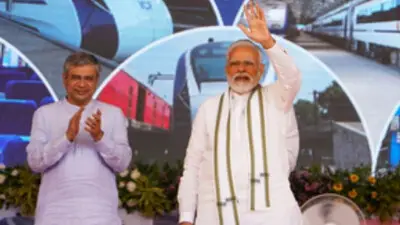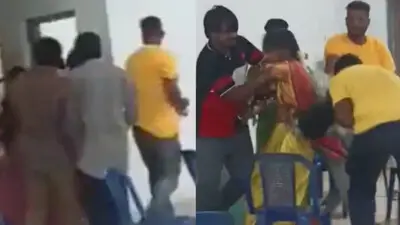Recommended Stories
Speaking at the inaugural session of the ninth Pravasi Bhartiya Divas here, HRD Minister Kapil Sibal invited the diaspora back to the "land of new opportunities" and help the government bridge the mismatch between demand and supply in the education sector.
Identifying education as the key to India`s future, he said in the next 15-20 years, the country will have to produce at least 250 million graduates and 500 million skilled workers to sustain high growth rate and to become one of the top nations in the world.
Sibal said currently only 12.4 per cent of the total 220 million school going children reach college and government aims to increase the percentage to 30 by 2020.
"If we are to achieve the percentage of college going students to 30, we will need 1,000 more universities and 45,000 more colleges. So there is a huge opportunity. It is not an easy job. It is a mindboggling challenge and I think 25 million diaspora is our strength here," Sibal said at the annual meet being attended by about 1,500 delegates from across the globe.
Currently, the country has around 600 universities and 26,000 colleges.
"If you increase the college enrollment to 30 per cent, you will get a critical mass going to university, which is important for any nation because they generate intellectual property which transforms into goods and services which then becomes the foundation of trade," he said.
Asking for deeper engagement in creating intellectual wealth, Sibal said the country needs investment of USD 150 billion alone in education sector in the next 10 years.
"If India is to become an important member in the comity of nations, the foundations of our strength will ultimately lie in the empowerment of our youth," the minister said.
Giving account of government`s initiatives in reforming the education sector, Sibal said various legislations are in the offing including the Foreign Education Providers Bill but put the blame on the Opposition parties for not allowing Parliament to function in the Winter Session, therby resulting in delay in their passage.
"In democracy, one way to defeat the government is to bring a no confidence motion against it. If you cannot defeat the government through a no confidence motion, then you do not have the luxury of stopping business of Parliament," Sibal said, criticising the opposition for stalling an entire session.
Maintaining that intellectual capital and power of knowledge will drive economic growth in the new world order, he said while encouraging private investment, government, however, will not compromise at all on quality of education.
"In this new economic order, colonisation will be through colonisation of mind, not through colonisation of geographical areas...believe you me, India is the land of opportunities. It is a confident India, hopeful India," he said.
Emphasising the need for introduction of IT and other new technologies to educate students wherever they might be in the country, Sibal said, "We can`t wait for 10 years to recruit teachers." He said government has initiated a project to connect all the schools, colleges and universities through broadband connectivity.
On Foreign Education Providers Bill, he said he was hopeful that it would be cleared by Parliament soon.
The proposed Foreign Education Providers law would facilitate globally renowned institutes to participate in India`s higher education sector. It will bring in foreign education providers for vocational education training also.
Prime Minister Manmohan Singh will address the ninth edition of the Pravasi Bhartiya Divas tomorrow while President Pratibha Patil will deliver the valedictory address on Sunday.
In a separate session on opportunities in the Northeast, Government tried to project the region as an ideal destination for investment.












